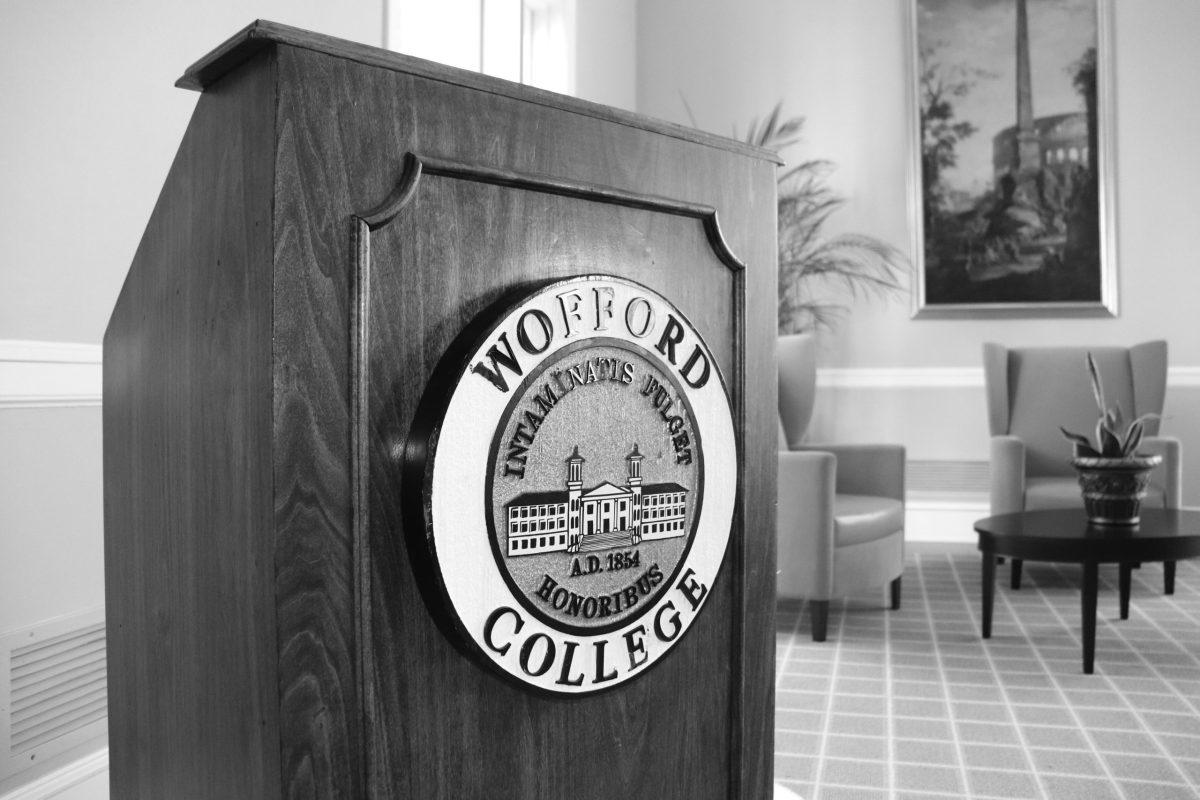When thinking of the different types of professors that teach at Wofford College, there is much more distinction than that of just an English instructor versus a history instructor. There are different roles, as with any job, that provide the faculty with varying levels of job security, opportunities, and responsibility.
The most basic type of instructor is that of an adjunct professor. This type of professor teaches one or two classes at an institution or several institutions and is hired on a semester-by-semester, course-by-course basis.
Marshall Evans Jr., adjunct professor of English, mentioned that this is a position that is growing in American academia. Evans recalled that, as of a few years ago, nearly 40% of all college courses were taught by adjunct instructors. At Wofford, however, this number is nowhere near the national average.
The percentage of courses taught by adjunct instructors at Wofford is very low, with the professors teaching having been well established within the institution, such as the affectionately dubbed “night philosophy” with Timothy Fisher, adjunct professor of philosophy.
The next classification of professorship is the instructor position, one that Steven Zides, senior instructor of physics, has held for many years at Wofford. He said that positions like these arise when there is a need for a course to be taught at a college full time. Generally, the instructor is a full-time instructor who is not the tenure track.
“The downside of a position like that is that it’s only as needed,” said Zides. “If the college decided that whatever you were doing was no longer needed, they could just terminate (you) at any time.”
He further explained that after being around for a while, he was promoted from instructor to senior instructor so as to draw a distinction between him and someone who is just starting out in the position.
A level up from this type of faculty member would be the assistant professor. Faculty in this role seek tenure at some point in their career, with it being labelled as a “tenure-track position.”
This is the probationary period for a professor in which they must prove themselves fit to be a part of the college’s faculty long-term.
Generally, the next rung on the ladder would be the associate professorship, which is available to those assistant professors who hold a doctoral degree and work as an assistant professor in their field of study for at least six years.
Interim Provost Timothy Schmitz explained that, “at Wofford, as at other colleges, in some cases if an assistant professor leaves a job at one institution and is hired at another, they may be granted a certain number of years of experience toward tenure because of their previous work experience.”
Schmitz did say that this is “something that may be subject to negotiation” and gave the following example: if a candidate came in with three years of teaching and research experience in their field, they may be able to take off one year of their six years of assistant professorship at Wofford.
The general title of “professor,” commonly referred to as “full professor,” is reserved for those who have been a tenured, associate professor for some years and have proved themselves “to have demonstrated leadership in at least one of the three main areas of faculty responsibility: teaching, scholarship and service,” according to Schmitz.
As Schmitz explained, there is not much job security when starting out in academia, and it is a field of work that sometimes causes people to “not get their first job until they’re 30… (and) give up their ability to choose where they live.”
It is a career choice full of sacrifice, which is why tenure is such an intriguing concept. The tenure at the end of the career search makes the uncertainty in the beginning well worth it, as it represents a level of job security rarely seen in other careers .
However, this is not necessarily a definite job that people can hold for the rest of their lives, as departments may dissipate at a university, eliminating the jobs of all faculty in the department.
Schmitz also said “that, in addition to protecting academic freedom and the freedom to teach, tenure knits the community together” and “it shows the long term commitment of the faculty to the institution…(and)…the obligation of the institution to the faculty.”
A tenured professor at Wofford has the requirement of instruction, continuing scholarly research at this institution and serving the college in some capacity, such as faculty governance or committees.
After retirement, Schmitz also explained that the Board of Trustees may promote a faculty member to professor emeritus, which allows for use of the library, institutional email and other luxuries of the sort, continuing as a retired scholar with institutional affiliation. This also endows more personal credibility if they choose to publish an article or continue research into retirement
On a more temporary level is the position of visiting professor. These professors are usually called upon when someone from the institution’s hired faculty is on sabbatical. They often make appearances on campuses for a short period of time, perhaps a single year, then transfer to another institution.
Sabbatical is where a professor can take some time away from their career and return to their same position without consequence. For more information on sabbaticals, see Eyon Brown’s ‘21 “Time away from campus but not a vacation,” found on the Old Gold & Black’s webpage.
“We don’t always need to replace someone on sabbatical with a full-time person,” said Schmitz. “In the history department, we might replace the first-year classes, the general education classes, but not the upper level course that doesn’t necessarily need to be taught.”
Amrutha Kunapulli, visiting professor of English, said that this is her first teaching job after graduate school, explaining that to many, this is an entry-level position that allows for instructors to get their name out there at a college or university.
She also mentioned that she does not plan to stay at Wofford, as there are no open positions in her field, so she has been applying to colleges and universities across the country, which is a common practice for newly graduated instructors.
The chair of a department is someone who is elected within their department at Wofford. At other universities, as Zides explained, there is some level of esteem with this position along with better pay, but at Wofford it is a service position held by different people in the department.
Schmitz also explained that “an endowed or named chair represents funds donated to the endowment in someone’s honor for the specific purpose of supporting a department or a particular position.”
With this, Zides also explained that there is no greater esteem associated with this position than the esteem associated with a general tenured associate professor.
The Southern Association of Colleges and Schools: Commission on Colleges (SACSCOC) is one of the five accreditation companies in the country and functions to ensure that the institution maintains its eligibility for federal funding.
SACSCOC makes sure that an institution is fulfilling the goals of the school, with a review every ten years. They ensure that the layout of the institution is fair and equitable in all regards.
Wofford College was one of the founding institutions of this program, and it works alongside the college, maintaining the high standards that Wofford has set for itself.
All of these components work together to create the faculty at Wofford that provides incredibly rigorous academic instruction for all students of the college.

























